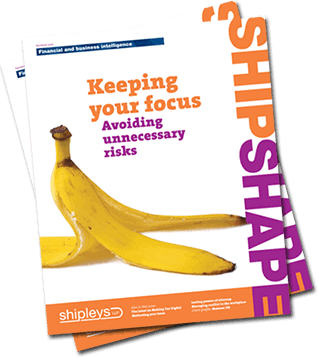Click here to see the key deadlines for this tax year.
Apprenticeship levy
If you, or employers you are connected to, have an annual pay bill of more than £3 million you need to add the apprenticeship levy payments to your monthly PAYE and NIC payments. This is generally ½% of the excess of your wages bill over £3m. It is calculated on the amount by which the wages in the year to date exceed the relevant proportion of a £15,000 annual allowance, with credit for payments already made for the year.
Employment allowance £3,000
The employment allowance is a credit against employer’s secondary NIC. Only one member of a group can claim the allowance. It’s not given if the only employee paid over the secondary threshold is a director, or for personal, household or domestic work (like a nanny or gardener) – unless they are a care or support worker. From 6 April 2020 only employers with annual employer NIC below £100,000 will qualify.
Forms P11D and payrolling of benefits
Employers can voluntarily register online before the start of a tax year to tell HMRC about benefits in kind to be payrolled. Benefits must be payrolled for a full tax year, and de-registration applications must be made before the year starts.
If all benefits in kind have been payrolled for an employee then a form P11D will not be required. However, accommodation and loanscan’t be included and must still be reported on form P11D. Form P11D(b) is also needed to account for the employer’s NIC on benefits. If you choose to payroll company car benefits, you do not need to submit a form P46(Car) unless the car benefit is not being payrolled.
Payslips
From 6 April 2019 the payslips for variable hours workers must show the hours for which they are being paid.
Payment dates
Those with up to 250 employers who have not been instructed by HMRC to make payment electronically can still pay by cheque, but payment must then be made three days earlier than the dates in the table above. If you usually pay less then £1,500 per month you may be able to pay quarterly not monthly.
Penalties, interest and estimates
Late filing penalties can apply to late FPS returns and range from £100 to £400 per month, depending on the number of employees. Interest is charged on a daily basis on late FPS payments. If you don’t submit an FPS (or an Employer Payment Summary (EPS) to say you haven’t paid any employees) HMRC will make an estimate and this specified charge will be included in your online account.
Pensions
Some employers choose to postpone enrolling new employees in the pension scheme for three months, but if the employee opts in then employers must be ready to include them straight away.
HMRC help and advice Stationery telephone order line: 0300 123 1074 PAYE
NI deductions advice: 0300 200 3200 Online: www.gov.uk/topic/business-tax/paye
Shipleys’ Client Payroll Department
The different PAYE codes and categories of national insurance contributions can make it tricky to get even the basic deductions right. However, real difficulties can arise when you add complications such as pension payments, payrolling of benefits, statutory sick pay, maternity and paternity pay, statutory redundancy pay, student loan repayments, attachment of earnings orders (covering things like Child Support Agency Payments) and modified PAYE schemes for expatriates.
Keeping abreast of the current rules and dealing with payroll matters is time consuming. That’s why Shipleys’ Payroll Department is popular with clients of all sizes. We can help with the whole process including employees’ payslips and issuing instructions to your bank, thereby protecting your accounts department from unnecessary queries from your staff. We can assist with online filing.
T 01483 423607
E payrollcentral@shipleys.com
Specific advice should be obtained before taking action, or refraining from taking action, in relation to the above. If you would like advice or further information, please speak to your usual Shipleys contact.












